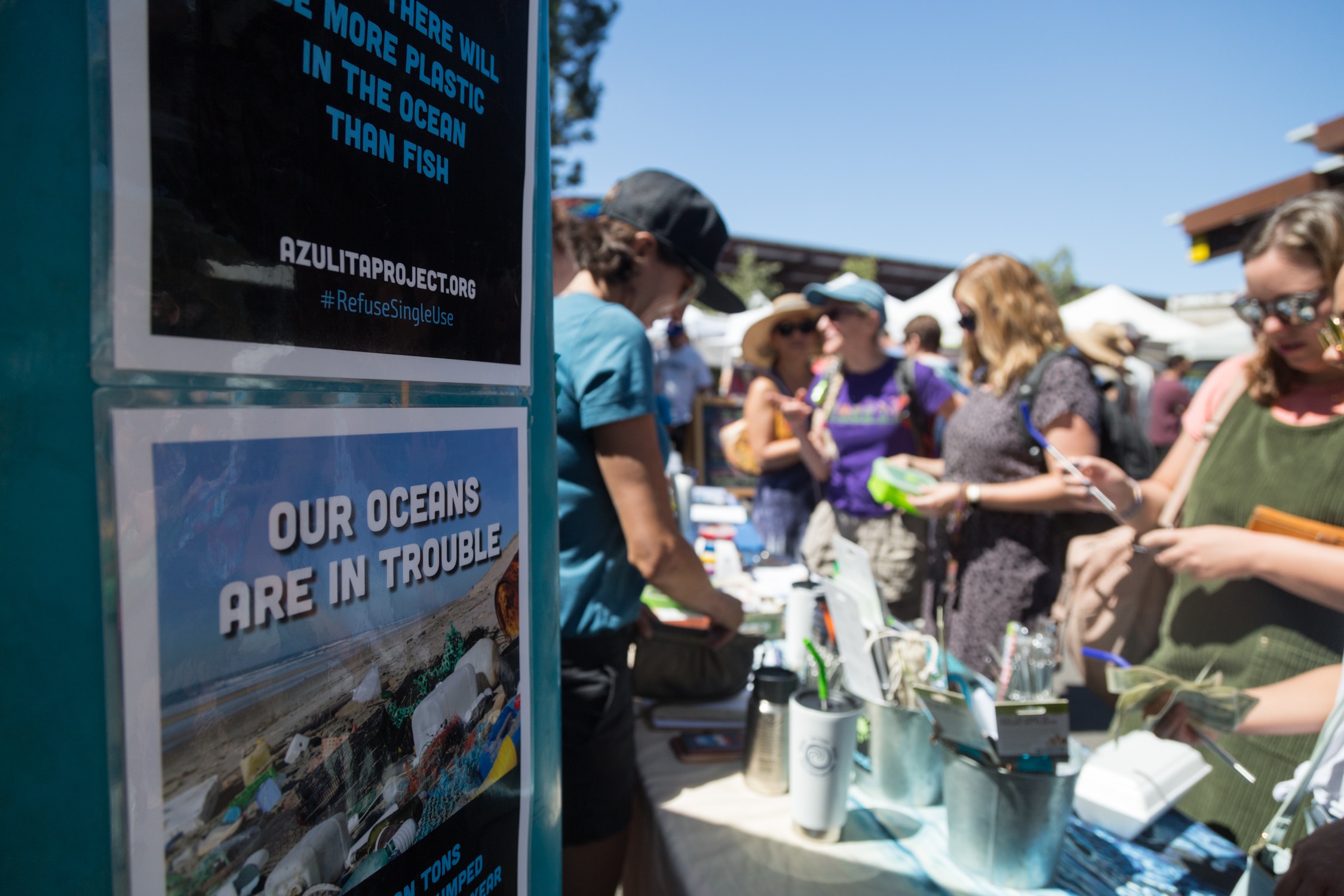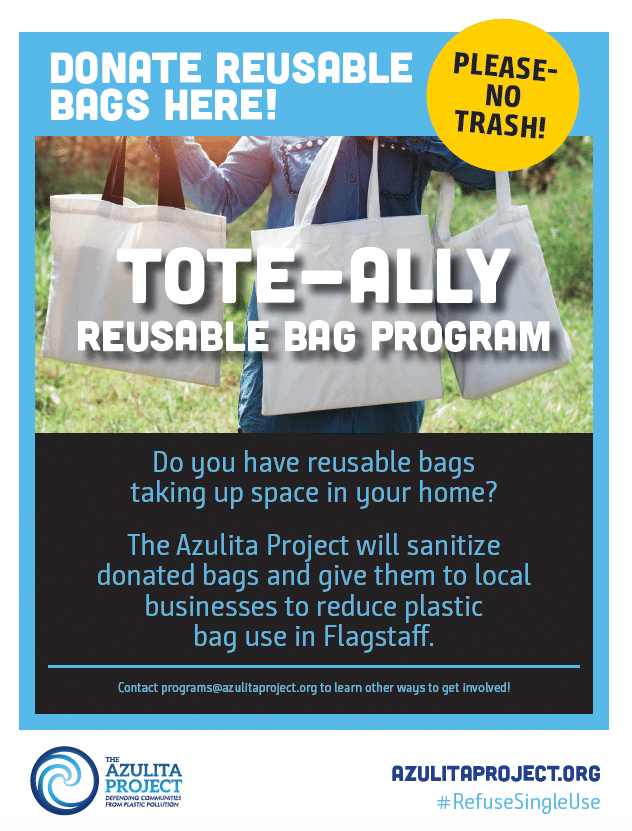Ask any environmentalist what the single greatest threat to Earth is and almost all would have the same answer: humans.
Between industry growth, deforestation and human trash all contributing to pollution, climate change continues to be a huge concern. One of the driving, unnecessary forces of that pollution? Single-use plastics.

As a student majoring in environmental studies and sustainability at Northern Arizona University, senior Rikayla Scholl is well aware of the harm humans and single-use plastics have on the environment. She has long been interested in sustainability and how a plastic-free society can be achieved. As fate would have it, a professor introduced her to The Azulita Project, a nonprofit organization based in Flagstaff with a mission to promote environmental conservation and community health through solution-based programs and education.
“When I heard their main goals were education and plastic reduction, I knew I wanted to get involved in any way possible,” she said.
Since the pandemic, plastic consumption has increased. More people are ordering food to go (which means plastic to-go dishes, utensils, condiment containers and bags), and with the fear of COVID-19 living on surfaces, restaurants are opting for single-use items instead of washing and reusing.
In hopes of cutting down on waste, Scholl helped The Azulita Project launch Tote-Ally, a program that provides community members free reusable bags to use and return. The bags are then sanitized and circulated back into the community.

Bags donated to the program sit in quarantine for at least three days. They are then washed, dried, sanitized and distributed to local businesses, like the Flagstaff Famers Market, for people to use and return to one of several drop-off locations throughout the community. Since the project was launched in May, more than 900 bags have been donated, most of which have already been used multiples times, saving thousands of plastic bags from ending up in the landfill.
“My hope is to eliminate single-use plastic bags in Flagstaff entirely, and to really emphasize the importance of reusable bags to be seen as a community asset that can help everyone reduce plastic usage. I believe that if people are educated on the topic, they are more likely to change their behaviors. Education is key to this revolution.”
To make a bag donation or find out more, email programs@azulitaproject.org.

(928) 523-5582 | carly.banks@nau.edu



